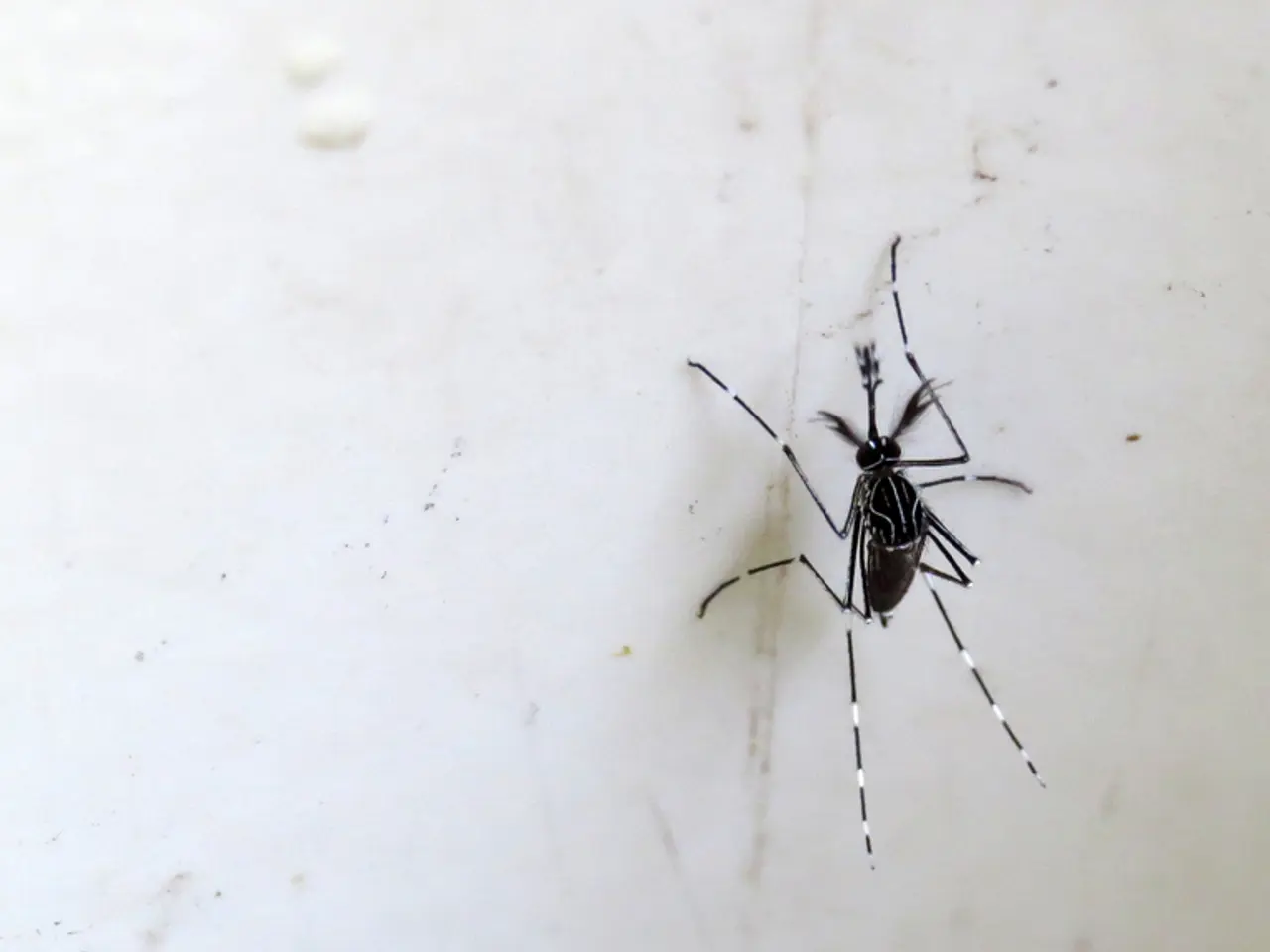Prepare, Brazil, for the arrival of 'beneficial mosquitoes'
In the face of warmer, wetter conditions that have facilitated the spread of the mosquito carrying the dengue virus, the World Mosquito Program (WMP) has taken a unique approach to combat dengue in Brazil. Instead of relying on genetically modified mosquitoes, the WMP uses Aedes aegypti mosquitoes infected with the bacterium Wolbachia, which prevents the mosquitoes from transmitting dengue, chikungunya, Zika, and other viruses.
This biological control method, which does not involve genetically modified organisms, has been in operation since 2014 in Brazil, with field trials taking place in Rio de Janeiro and other high-risk areas. The Wolbachia wMel strain has successfully introgressed about 32% of mosquitoes in the release areas, leading to a reduction of approximately 38% in dengue cases and 10% in chikungunya.
The heart of the WMP's operation in Brazil is a massive biofactory, Wolbito do Brasil, which was recently inaugurated. This facility, located in Curitiba, has the capacity to produce up to 100 million mosquito eggs per week, supplying the Ministry of Health with the modified mosquitoes for targeted releases. Another factory, operated by the WMP, is based in Rio de Janeiro.
The Wolbachia method complements traditional approaches such as insecticide use and elimination of mosquito breeding sites. In contrast, Brazil also approves and regulates genetically modified mosquitoes from companies like Oxitec, where genetically engineered males are released to produce offspring that die early, reducing mosquito populations. However, this is a separate approach from the WMP’s Wolbachia method.
The effectiveness of the Wolbachia approach doesn't depend on the public's actions. In Niteroí, where the Wolbitos have been introduced, the levels of two other mosquito-borne viruses - chikungunya and Zika - fell by over 96% and 99% respectively. Dengue numbers have also dropped significantly, with a roughly 90% drop compared to the 10 years prior.
Health workers, like Raissa Vieira, a community health worker in Niteroí, have gone door-to-door to inform people about the Wolbito initiative. Anamaria Schneider, the health secretary in Niteroí, refers to the Wolbitos as "mosquito du bem" - "the good mosquito." Even Fábio Vilas-Boas, the head of Niteroí's Center for Zoonosis Control, who initially had concerns about releasing Wolbitos, now supports the approach.
Alexandre Padilha, the Minister of Health, announced a goal to protect 140 million Brazilians across 40 municipalities against dengue over the next decade. The Brazilian government has made a significant investment to create and deploy these modified mosquitoes across the country.
However, while the Brazilian-made dengue vaccine is soon to be available, anti-vax sentiment and doubts surrounding vaccines have grown. This underscores the importance of the WMP's work, as the Wolbachia method provides an additional layer of protection against dengue, chikungunya, and Zika.
As dengue numbers continue to rise globally, with over 3.1 million cases reported in Brazil this year alone, the WMP's approach offers a promising solution. Cátia Cabral, a biologist at the World Mosquito Program, supervises the mosquito factory in Rio de Janeiro and believes these mosquitoes can help reduce disease loads across Brazil. The introduction of Wolbitos in Niteroí serves as a testament to the potential of this approach in the fight against mosquito-borne diseases.
- The World Mosquito Program (WMP) in Brazil uses sentiments obtained from the public to complement their analysis on the efficacy of their Wolbachia method, as anti-vax sentiment and doubts about vaccines have recently grown.
- The Brazilian government's ESG investment in the production and deployment of modified mosquitoes, such as the ones from the World Mosquito Program and Oxitec, is rising in response to medical-conditions like dengue, chikungunya, and Zika, as reported cases continue to soar globally.
- As the Wolbachia method doesn't require the involvement of genetically modified organisms, credit for the success of the program can be attributed to the science behind bacterium Wolbachia and the discovery of its ability to prevent mosquitoes from transmitting specific viruses.
- In the health-and-wellness sector, researchers are actively studying the impact of various factors on dengue transmission rates, including microclimatic changes, human behavior, and the interplay between different mosquito-borne viruses in Brazilian regions where Wolbitos have been introduced, like Niterói.




